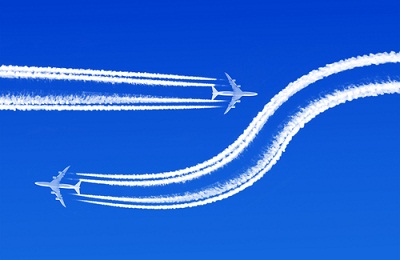At its 69th annual general meeting, held in Cape Town, South Africa, this week, the International Air Transport Association proclaimed the need for “a global approach to managing aviation’s carbon emissions.”
Overwhelmingly endorsing a resolution on Implementation of the Aviation Carbon-Neutral Growth (CNG2020) Strategy, the association agreed that a single mandatory carbon-offsetting scheme would be the simplest and most effective market-based measure (MBM) to institute.
“Airlines are committed to working with governments to build a solid platform for the future sustainable development of aviation. Today, they have come together to recommend to governments the adoption of a single MBM for aviation and provide suggestions on how it might be applied to individual carriers. Now the ball is in the court of governments. We will be strongly supporting their leadership as they seek a global agreement through the International Civil Aviation Organization (ICAO) at its Assembly later this year,” said IATA Director General and CEO Tony Tyler.

Photo courtesy Shutterstock
Environment will be at the top of the agenda for the 38th ICAO Assembly in September. “Sustainability is aviation’s license to grow,” said Tyler, adding, “With that understanding and a firm focus on the future, airlines found an historic agreement. This industry agreement should help to relieve the political gridlock on this important issue and give governments momentum and a set of tools as they continue their difficult deliberations.”
Aviation, he pointed out, has been the first industry to suggest a global approach to the application of a single MBM to manage its climate change impact. This keeps aviation in the forefront of industries on managing carbon emissions. It was also the first to agree on global targets, with a global strategy to achieve them. These are: improving fuel efficiency by 1.5 percent annually to 2020, capping net emissions with CNG2020, and cutting emissions in half by 2050 compared to 2005.
The principles of the resolution include:
- Setting industry and individual carrier baselines using average annual total emissions over the period 2018–2020;
- Making provisions to recognize early adapters, and to accommodate both new market entrants and fast-growing carriers;
- Adopting an equitable balance for determining individual carrier responsibilities that includes consideration of an “emissions share” element (reflecting the carrier’s share of total industry emissions) and a post-2020 “growth” element (reflecting the carrier’s growth above baseline emissions);
- Basing reporting and verification of carbon emissions on a global standard to be developed by ICAO;
- Developing a reporting process that is simple and scalable, depending on the size and complexity of the operator; and
- Instituting a periodic CNG2020 performance review cycle that revises individual elements and parameters, as appropriate.
An MBM is one of the four pillars of the aviation industry’s united strategy on climate change. Improvements in technology, operations and infrastructure will deliver the long-term solution for aviation’s sustainability. “Today’s agreement focuses on a single global MBM as part of a basket of measures. A single MBM will be critical in the short-term as a gap-filler until technology, operations and infrastructure solutions mature. So we cannot take our eye off the ball on developing sustainable low-carbon alternative fuels, achieving the Single European Sky or the host of other programs that will improve aviation’s environmental performance,” said Tyler.
"One of our key messages to governments will be that aviation should be treated like any other business. We don't want a handout, but we also don't want to be singled out for special fees and taxes, and commercial regulations that chill market creativity and initiative," Tyler said on Monday. Forecasting that airlines will earn only US$4.00 per passenger—"less than the cost of a sandwich at most places"—he urged governments not to view the aviation industry as "elite" and, therefore, not to single it out in terms of “taxes and regulations.”
In spite of low earnings per passenger, IATA upgraded its global outlook for the airline industry to a US$12.7-billion profit in 2013 on revenues of US$711 billion. This is US$2.1 billion higher than the US$10.6-billion profit projected in March.
Edited by Rory J. Thompson
 Internet Telephony Magazine
Click here to read latest issue
Internet Telephony Magazine
Click here to read latest issue CUSTOMER
CUSTOMER  Cloud Computing Magazine
Click here to read latest issue
Cloud Computing Magazine
Click here to read latest issue IoT EVOLUTION MAGAZINE
IoT EVOLUTION MAGAZINE




